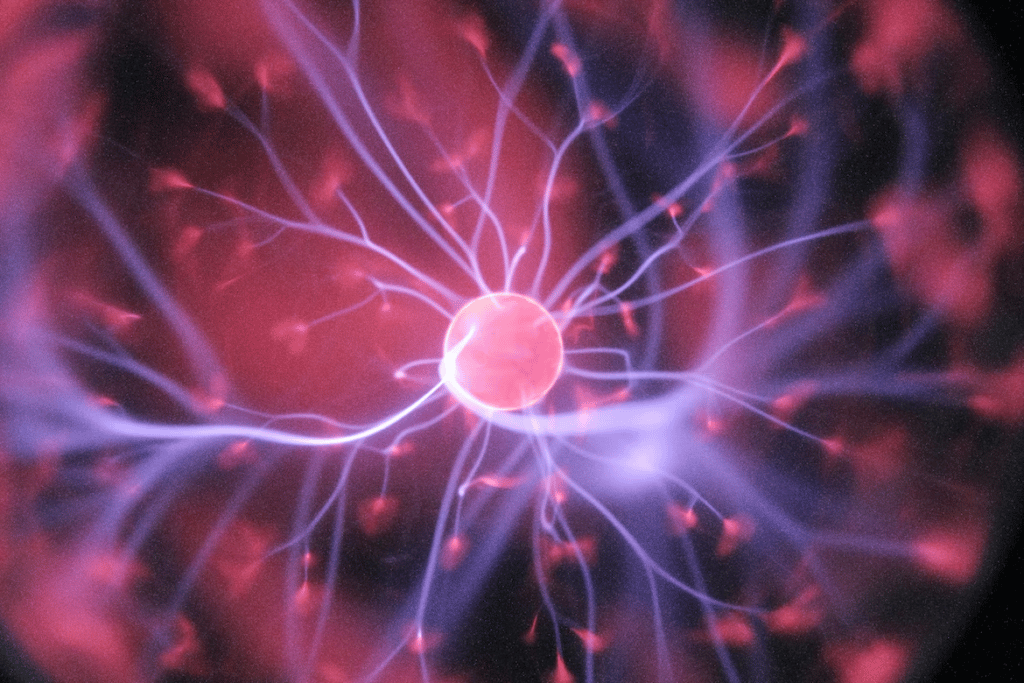The modern world isn’t easy on the mind, and shrooms carry a promise of helping us cope. The therapeutic benefits of magic mushrooms are entering public consciousness, and scientists are working to understand and harness them.
Beyond 60s-style trips and religious ceremonies, shrooms have a spot in standard medicine. Current research suggests they may treat addictions, anxiety, and persistent depression, and many more studies are underway.
Join us to learn about the medical potential of psilocybin. We discuss existing proof of its effectiveness, the mechanisms that drive it, and noteworthy clinical trials.
Which Conditions Could Shrooms Treat?
Many call the shroom trip life-changing; they aren’t just being dramatic. A growing body of researchers is now looking into psilocybin, the primary hallucinogen in these fungi.
The therapeutic benefits of magic mushrooms may support people with hard-to-treat and treatment-resistant life-disrupting ailments. Their applications are many, but these three have the most scientific backing.
Addictions
A pilot study from Johns Hopkins found psilocybin therapy helped people abstain from smoking for a year. According to psychiatrists, shrooms could also aid with other addictions.
Another study found people drank less alcohol following shroom treatment. An Alabama research group is now looking into ways psilocybin may assist cocaine dependency.
The rationale is that substance abuse disorders happen due to narrow mental and behavioral patterns. When tripping on shrooms, people get shaken out of the unhealthy routine. They get a new perspective on the issue and find it easier to fight.
Death Anxiety
A 2011 pilot study has shown that psilocybin may relieve overwhelming existential fear in people with advanced-stage cancer. A Johns Hopkins trial from 2016 found a dose of shrooms reduced depression and anxiety in such patients, improving their quality of life.
Shrooms offer a perspective shift valuable to people frozen in fear of death. Psychiatrists consider them applicable outside of the cancer context.
Depression
Depression is the best-researched therapeutic benefit of magic mushrooms. A recent study discovered a sustained antidepressant effect of psilocybin, meaning the symptoms don’t re-emerge soon after consumption.
Psychiatrists describe this benefit as psilocybin rebooting the brain. It may provide new associations and deactivate connections that might’ve been responsible for depression.
Besides these applications, researchers are looking into shrooms for anorexia, PTSD, OCD, Alzheimer’s, and demoralization syndrome.
How Do Shrooms Deliver Their Benefits?
Psilocybin research is exciting because of its multi-layered potential. It may address the psychology of mental health issues, not just alleviate symptoms.
Brain behavior illustrates this thorough effect.
Sober brains prioritize some neural connections and disregard others. That leads to a narrow understanding of ourselves and the world. Tripping on shrooms activates less-used pathways, enabling a perspective shift.
A hallucinating brain has all the neurons acting non-focused and disorganized. The self-reflecting thought stream gets subdued, too, so the ego doesn’t limit what we can imagine.

The therapeutic benefits of magic mushrooms don’t end with the trip.
Animal studies show psychedelics prompt neuron growth, strengthening rarely used pathways. The mind establishes a new normal, making the effects long-term.
How can we harness this in clinical settings?
The idea behind shroom therapy is that mental health issues stem from harmful patterns. Behaviors and lifestyles reinforce them, and it eventually becomes hard to think outside them.
For instance, a person may have a trauma-informed response and see the outside world as a threat. This view makes them shut down in new situations.
Psychedelics shake things up. They may weaken the trauma pathway and offer a previously disregarded alternative, like a desire to explore.
Therapists use this plasticity to advise or update negative patterns. They alter their patients’ belief structures and enable healing.
Psychedelic Therapy
Psilocybin-driven therapy harnesses this mind-expanding potential. It consists of controlled shroom sessions and talk therapy, where the participants integrate their insights.
Shroom consumption takes place in safe, comfortable spaces to reduce the risk of bad trips. Experts guide the subject with questions, music, and visuals, but much time transpires in quiet introspection.
Days or weeks after, a therapist works with the participant to harness the new mindset.
Current Clinical Shroom Studies at a Glance
Shrooms face social stigma and rivers of red tape. Despite these limitations, researchers are working hard on clinical trials that might eventually lead to FDA approval.
Here are some high-profile examples:
- Johns Hopkins is conducting trials on psilocybin for smoking cessation, Alzheimer’s, anorexia, OCD, and more. The institute is also investigating shroom effects on brain activity in healthy individuals.
- Compass Pathways is developing a therapy model for people with treatment-resistant depression. The idea got designated a Breakthrough Therapy status and is currently at the third research stage.
- Washington University School of Medicine explores psilocybin for depression in two ways. Besides measuring symptoms after shroom usage, researchers scan the brain to gauge how the substance affects the neural pathways.
- The University of Wisconsin researchers are comparing the effectiveness of psilocybin taken orally and intravenously. Another group is looking at shrooms for meth addiction.
- Connecticut scientists are looking at the therapeutic benefits of magic mushrooms for cluster headaches.
- The University of California is investigating shroom usage for phantom limb pain.
- The Pacific Neuroscience Institute is investigating the perks of nature-themed visuals in the shroom-consumption setting.
Prodigious Psilocybin
Many meds only tackle symptoms, while psilocybin may challenge and alter preconceptions. Shrooms could be a game-changer: an effective, comprehensive, long-lasting mental illness treatment.
The current studies are promising, and FDA approval is imminent if they continue at this rate. Activism is growing stronger, too, making it harder to ignore the therapeutic benefits of magic mushrooms.
As researchers explore the effects, hobbyists may legally investigate shrooms via microscopy. Why not visit our spore store, order lab-grade syringes, and engage in some under-the-lens appreciation of the fifth kingdom?
All of the content and images on our site are for informational reference only. The cultivation of psilocybin mushrooms is federally illegal in the United States. We do not promote the cultivation of psilocybin “magic” mushrooms under any circumstances. Do not contact us asking for advice related to this subject. Any products found on this site are for microscopy and taxonomy purposes only. None of the psilocybin mushroom spores we offer are for consumption or cultivation. We do not sell any products containing psilocybin.

